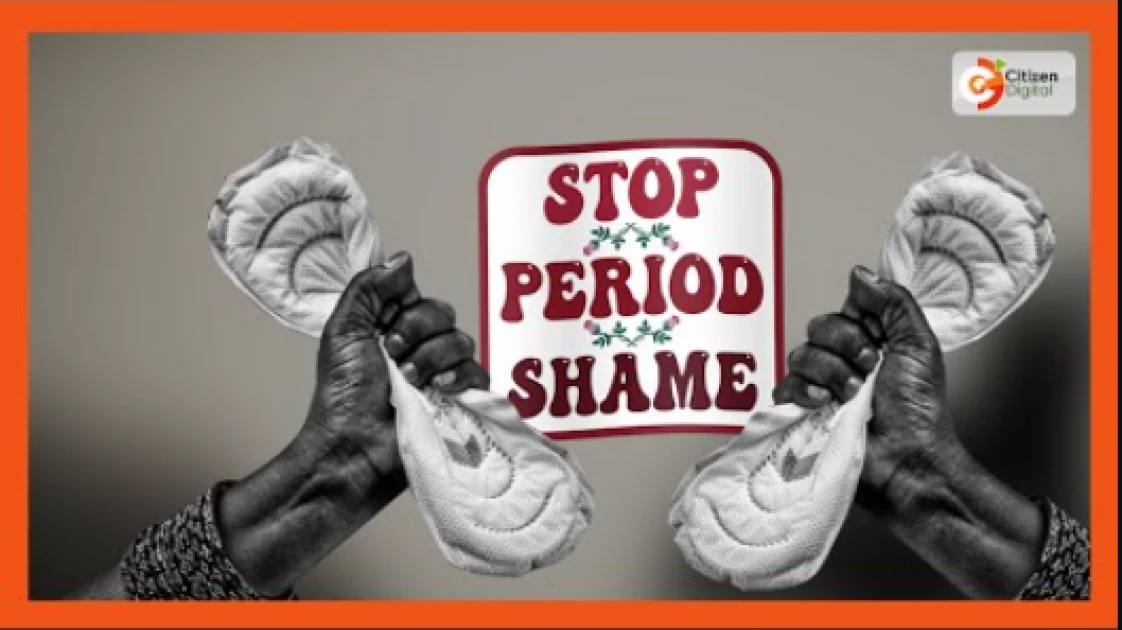OPINION: Period Shaming - Kenya’s invisible crisis everyone keeps ignoring

In Kenya, calls for free sanitary products continue to gain momentum, but beneath this urgent demand lies a deeper, often overlooked crisis-menstrual stigma.
This persistent shame is not limited to rural schools or low-income communities—it exists in homes, classrooms, workplaces, and even in the halls of Parliament. While tackling period poverty is essential, focusing solely on product access risks ignoring the stigma that continues to silence and marginalise women and girls.
Menstruation remains one of Kenya’s most entrenched taboos. Often seen as unclean or shameful, it’s a subject many shy away from—even as it takes a heavy toll on girls’ education and well-being. Research shows that 95% of menstruating girls miss school during their periods, 70% experience a drop in academic performance, and more than half fall behind in their studies.
But these numbers only scratch the surface. Beyond absenteeism, many girls grapple with anxiety, fear, and withdrawal from sports and social activities. Over time, this chips away at their self-esteem and contributes to school dropouts—ultimately limiting their opportunities and undermining their long-term prospects.
Tragically, stigma’s impact is not hypothetical. In 2019, 14-year-old Jackline Chepng’eno from Bomet County took her own life after being publicly humiliated at school for staining her clothes during her period. Lacking access to sanitary products and branded “dirty” by her teacher, Jackline was forced out of class in front of her peers—her shame and isolation proving fatal.
This shame is not confined to schools or rural areas—it reaches the highest offices of power. In February 2023, Senator Gloria Orwoba walked into the Kenyan Senate wearing what appeared to be a menstrual stain on her white trousers, boldly forcing a conversation on menstrual stigma. Rather than support, she was met with condemnation.
Female Senators called her “indecent,” male senators deemed the issue “taboo and private,” and the Senate Speaker asked her to leave and change clothes. Even lawmakers, it seems, find menstruation too uncomfortable to discuss openly.
Kenya’s Menstrual Hygiene Management (MHM) policy has opened doors for conversation and improved access to menstrual products. Yet it falls short of confronting the societal norms that silence girls. The focus on discreetly managing menstruation reinforces the idea that periods are something to hide rather than normalise. Policies that frame menstruation as merely a hygiene issue risk covering up stigma instead of dismantling it.
The consequences of this stigma are visible everywhere—from bullying and exclusion in schools to discrimination in workplaces and social biases. Women are often unfairly seen as less capable, irrational, or unclean during their periods, reinforcing damaging stereotypes that further entrench their marginalisation.
To address this comprehensively, policies must move beyond product distribution and hygiene campaigns to promote menstrual education that fosters a deeper understanding of menstrual health and challenges the cultural and societal norms perpetuating shame.
Schools must become safe spaces where both girls and boys can openly learn about comprehensive menstrual health and the damaging effects of stigma. Teachers need training to respond with empathy, while communities must work to normalise the conversation.
Dismantling menstrual stigma requires engaging all members of society, especially men and boys, who often hold significant influence over household and community discussions about menstrual health but are frequently excluded from the conversation.
Period shaming is not merely a matter of embarrassment; it is a symptom of entrenched gender inequality that seeks to control women’s bodies, limit their autonomy, and reinforce male dominance. By framing menstruation as something shameful or unclean, society reinforces barriers that prevent menstruators from fully engaging in education, work, and public life.
A model emerging in Kenyan schools offers a powerful blueprint for tackling menstrual stigma, one that should be replicated nationwide. In addition to providing vital support, including the distribution of 19,000 sanitary products to over 750 girls annually, initiatives like the AIDS Healthcare Foundation's School Health program engage both girls and boys in age-appropriate discussions about menstruation, gender, and sexual health.
These programs, rooted in comprehensive sexuality education, address not just biology but the emotional and social aspects of growing up. By fostering understanding and respect, they challenge stigma early on.
The fight for menstrual health isn’t a choice between access and acceptance—it requires both. Providing free sanitary products and sanitation is critical, but so is ending the stigma that isolates millions. Only by tackling period poverty and shame together can Kenya unlock the full potential of its girls and women.
Dr. Samuel Kinyanjui is the Country Director, AIDS Healthcare Foundation Kenya.
Want to send us a story? SMS to 25170 or WhatsApp 0743570000 or Submit on Citizen Digital or email wananchi@royalmedia.co.ke
Comments
No comments yet.


Leave a Comment